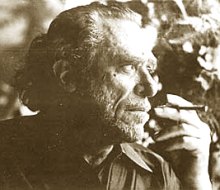See also
- Pleasure Palace , 1980 American television film
- The Palace of Heavenly Pleasure , 2003 novel by Adam Williams
The Palace of Pleasure may refer to:

Kubla Khan: or A Vision in a Dream is a poem written by Samuel Taylor Coleridge, completed in 1797 and published in 1816. It is sometimes given the subtitles "A Vision in a Dream" and "A Fragment." According to Coleridge's preface to Kubla Khan, the poem was composed one night after he experienced an opium-influenced dream after reading a work describing Shangdu, the summer capital of the Mongol-led Yuan dynasty of China founded by Kublai Khan. Upon waking, he set about writing lines of poetry that came to him from the dream until he was interrupted by "a person on business from Porlock". The poem could not be completed according to its original 200–300 line plan as the interruption caused him to forget the lines. He left it unpublished and kept it for private readings for his friends until 1816 when, at the prompting of Lord Byron, it was published.
Psyche is the Greek term for "soul".

Henry Charles Bukowski was an American poet, novelist, and short story writer. His writing was influenced by the social, cultural, and economic ambience of his adopted home city of Los Angeles. Bukowski's work addresses the ordinary lives of poor Americans, the act of writing, alcohol, relationships with women, and the drudgery of work. The FBI kept a file on him as a result of his column Notes of a Dirty Old Man in the LA underground newspaper Open City.

Shangdu, also known as Xanadu, was the summer capital of the Yuan dynasty of China before Kublai moved his throne to the former Jin dynasty capital of Zhōngdū which was renamed Khanbaliq. Shangdu is located in the present-day Zhenglan Banner, Inner Mongolia. In June 2012, it was made a World Heritage Site for its historical importance and for the unique blending of Mongolian and Chinese culture.
Asylum may refer to:
Sadist refers to:

Ella Wheeler Wilcox was an American author and poet. Her works include the collection Poems of Passion and the poem "Solitude", which contains the lines "Laugh, and the world laughs with you; weep, and you weep alone." Her autobiography, The Worlds and I, was published in 1918, a year before her death.

James Harrison was an American poet, novelist, and essayist. He was a prolific and versatile writer publishing over three dozen books in several genres including poetry, fiction, nonfiction, children's literature, and memoir. He wrote screenplays, book reviews, literary criticism, and published essays on food, travel, and sport. Harrison indicated that, of all his writing, his poetry meant the most to him.
Alone may refer to:
The Garden or The Gardens may refer to:

Jimmy Santiago Baca is an American poet, memoirist, and screenwriter from New Mexico.
A tattoo is a marking made by the insertion of indelible ink into the skin.
Happiness is an emotional state characterized by feelings of enjoyment, pleasure, and satisfaction.

The Haunted Palace is a 1963 horror film released by American International Pictures, starring Vincent Price, Lon Chaney Jr. and Debra Paget, in a story about a village held in the grip of a dead necromancer. The film was directed by Roger Corman and is one of his series of eight films largely based on the works of American author Edgar Allan Poe.
"The Haunted Palace" is a poem by Edgar Allan Poe. The 48-line poem was first released in the April 1839 issue of Nathan Brooks' American Museum magazine. It was eventually incorporated into "The Fall of the House of Usher" as a song written by Roderick Usher.
Night is the period in which the sun is below the horizon.

The Piano is the original soundtrack, on the Virgin Records label, of the 1993 Academy Award-winning film The Piano. The original score was composed by Michael Nyman and is his twentieth album release. Despite being called a "soundtrack", this is a partial score re-recording, as Nyman himself also performs the piano on the album. The music is performed by the Munich Philharmonic Orchestra conducted by Nyman with Michael Nyman Band members John Harle, David Roach and Andrew Findon performing the prominent saxophone work.
"Stars at Tallapoosa" is a poem from Wallace Stevens's first book of poetry, Harmonium. It was first published in 1922, so it is in the public domain.
Pleasuredome or Pleasure Dome may refer to:

The Palace of Pleasure is a poem by James Henry Leigh Hunt published in his 1801 collection Juvenilia. Written before he was even sixteen, the work was part of a long tradition of poets imitating Spenser. The Palace of Pleasure is an allegory based on Book II of Edmund Spenser's The Faerie Queene and describes the adventure of Sir Guyon as he is taken by airy sylphs to the palace of the "Fairy Pleasure". According to Hunt the poem "endeavours to correct the vices of the age, by showing the frightful landscape that terminates the alluring path of sinful Pleasure".